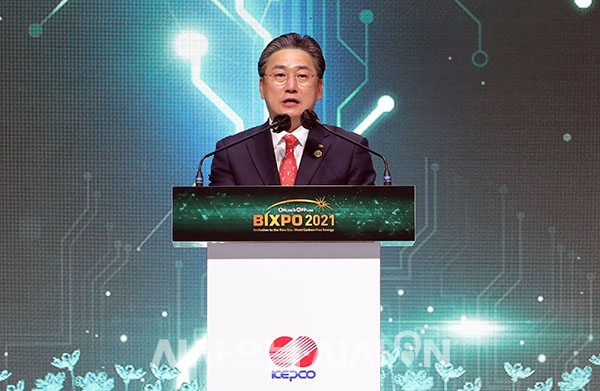KEPCO, its subsidiaries declare the carbon neutral vision ‘ZERO for Green’
KEPCO and its six power generation subsidiaries jointly declared on Nov. 10 that they would take the lead in implementing carbon neutrality by completely suspending coal power generation by 2050.
It also announced its goal of investing in the development of new and renewable technologies such as offshore wind power, solar power, and hydrogen, and achieving power grid optimization.
Seven public power generation companies, including KEPCO, announced their carbon-neutral vision 'ZERO for Green' at the 'Bitgaram International Power Technology Expo 2021 (BIXPO 2021)', which opened at the Kim Dae-jung Convention Center in Gwangju on the same day.

“Carbon neutrality is a very challenging and difficult task. If the world gathers capabilities and wisdom into one and cooperates, it will be successful,” President Cheong Seung-il of KEPCO said.
Public power generation companies pledged to reduce carbon emissions in the power generation sector to “zero” by shifting from coal power generation to new and renewable energy.
To this end, they have decided to completely halt coal power generation by 2050.
Instead, they decided to develop new renewable projects such as large-scale offshore wind power and next-generation solar power.
Hydrogen-based power generation such as ammonia, green hydrogen, etc. will also be expanded in stages.
KEPCO and other subsidiaries have decided to actively develop new technologies in the energy sector.
To this end, the 'Carbon-neutral Technology Development Strategy' was also announced on the same day, containing the joint technology development strategy and implementation plan.
First of all, the unit cost of offshore wind power generation will be reduced by more than 40% compared to the current one by 2030, lowering 150 won per kwh. This will be made through the development of turbine enlargement and large-scale complex construction technology.

